A 'dirty' small-town election campaign shows how partisan politics seeps into Arizona communities
Candidates and local officials said they’ve never seen anything like this year’s "vitriolic" election in Fountain Hills, a small town of 25,000 people in the Phoenix area's northeast Valley where races are typically low profile and amicable.
The mayor’s seat and three council positions were on the Aug. 2 ballot, with former Maricopa County Sheriff Joe Arpaio spending massive amounts of cash in an effort to take the top spot from incumbent Mayor Ginny Dickey, and four candidates — three conservatives and one liberal — vying for the council seats.
It got ugly when some right-wingers sought to establish a conservative majority, painting their left-wing opponents as “communists,” “leftists” or extremists despite the election being for positions that require the winners to mostly oversee non-ideological issues such as zoning and road repair.
The race got so heated that an entire angry audience was removed during a candidate forum earlier this year, when GOP council candidate and former Illinois state Rep. Allen Skillicorn called his opponent, Cindy Couture, a liar before implying that she and other “liberals” were “ignorant.”
Fountain Hills’s departure from amiability to hostility marks another instance of party politics entering into “nonpartisan” local races. It’s a shift for the conservative-majority town where voters have rarely balked at electing Democrats in the past.

“This year's race was vitriolic. It was horrible,” said Couture, a 72-year-old retired English teacher who lost her race and was branded as a far-left radical because of her Facebook posts about prosecuting “anti-vaxxers” and Democratic Socialism. “I mean, it didn't belong in Fountain Hills. We are a nicer community than this, but they wanted to win at all costs.”
A political action committee called Reclaim Our Town, or ROT, spent thousands on signs that depicted Dickey as a puppet master leading the town to disaster and included slogans such as “leftists ruin towns.”
Conservative candidate Brenda Kalivianakis, who won a seat on the council, said she did not support ROT’s negative campaigning and “did her own thing,” while candidate Hannah Toth and Skillicorn, who wont the other two council seats, joined the PAC in taking swings, getting firmly behind the push to secure a partisan majority.
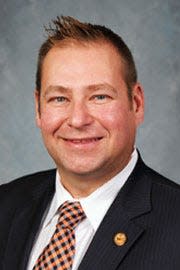
“I am only running because the current liberal majority does not represent the values of our conservative town,” Skillicorn told The Arizona Republic.
Dickey was labeled a “leftist” because of her connection with Couture, whose bid for Town Council she supported, although Dickey believes she’s governed in a nonpartisan way.
Complaints from the PAC and Republican council candidates about Dickey’s leadership largely centered around more material issues, like the town’s four “sober homes” — which multiple officials said sparked the desire to flip the Town Council — rules about how businesses can display signs, and COVID-19 mitigation measures that ended last year.
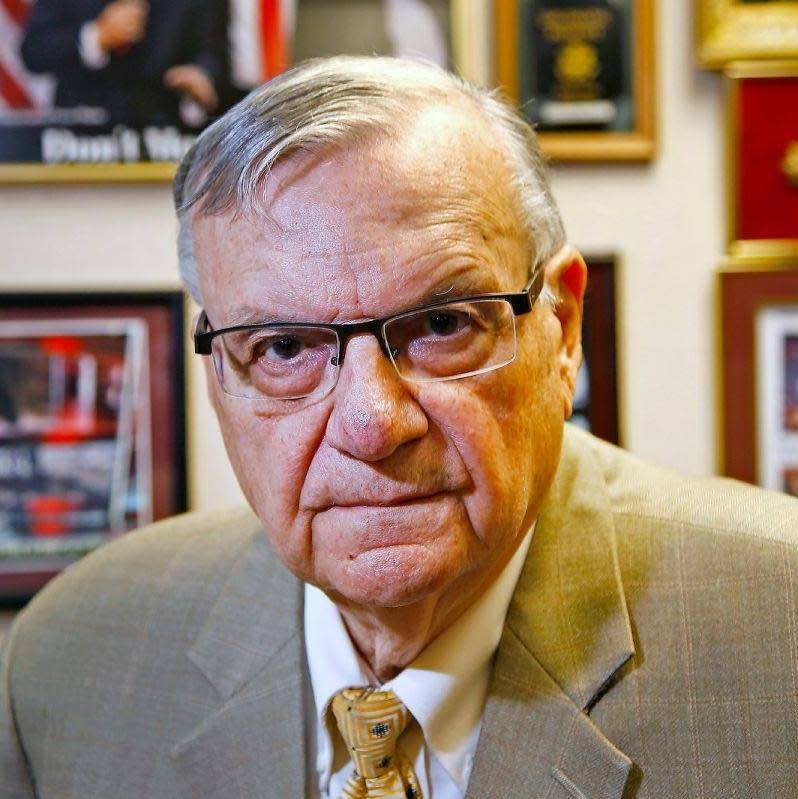
By the time the election was over, the conservative candidates had secured the majority they were after. They are slated to replace Councilmembers Mike Scharnow and David Spelich, both Republicans, and Allen Magazine, a Democrat. The latter two said they chose not to run for personal reasons.
Dickey narrowly defeated Arpaio despite “America’s toughest sheriff” spending an unusually high amount of cash in the small town’s race. He spent more than $160,000 — roughly three times that of all the other Fountain Hills candidates combined and 600% more than Dickey's nearly $27,000.
Arpaio has vowed not to concede; however, he was recycling debunked voter fraud allegations from 2020 and saying he will explore legal challenges — another instance of local races mirroring the troubled state of national politics.
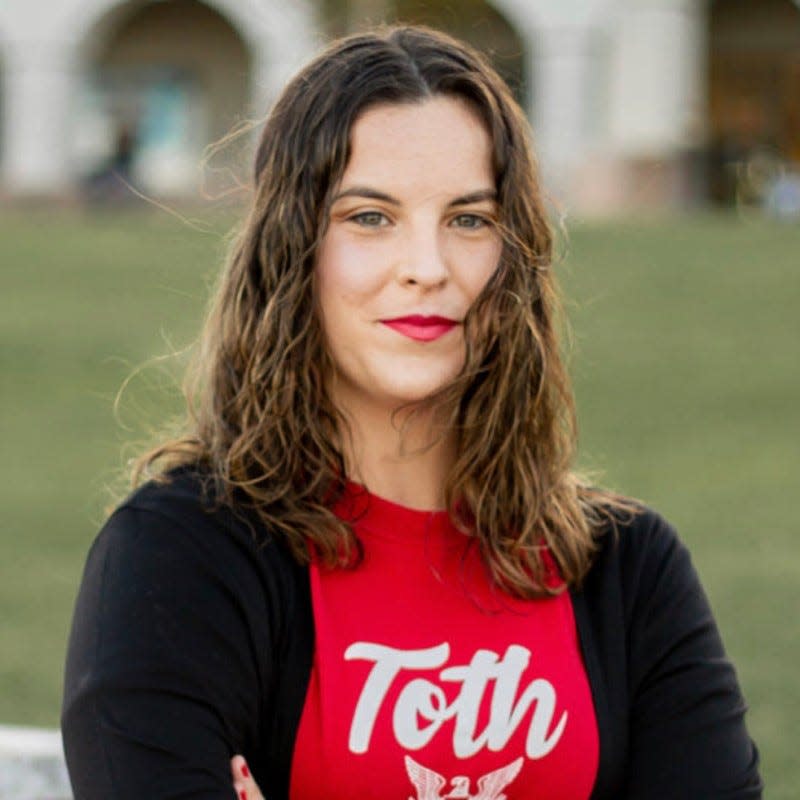
“I'm waiting to confirm with a lawyer,” he told The Republic when asked if he was going to challenge the results. “I will say one thing: I am not going to concede.”
Whether the election in Fountain Hills is a canary in the coal mine for the longstanding practice of nonpartisan local elections in Arizona communities, one of the town's newest local leaders said it is already dead or never really existed at all.
“Nonpartisan or not, every single candidate for public office has a party behind them,” said Toth, the second-highest vote getter in the Town Council race. “In a lot of ways, I think we were kidding ourselves to believe otherwise.”
Most Arizona cities and towns don't place political party labels on mayoral or council candidates. A state lawmaker who proposed changing that several years ago faced fervent opposition from city officials, who said local issues such as pothole repairs are nonpartisan in nature.
‘Sober home’ issues spurred the partisan change
Fountain Hills candidates and officials said one hot-button issue is at the heart of the partisan shift this year: sober homes. The facilities are operated in residential neighborhoods and give people who are addicted to drugs a place to stay while they get clean.
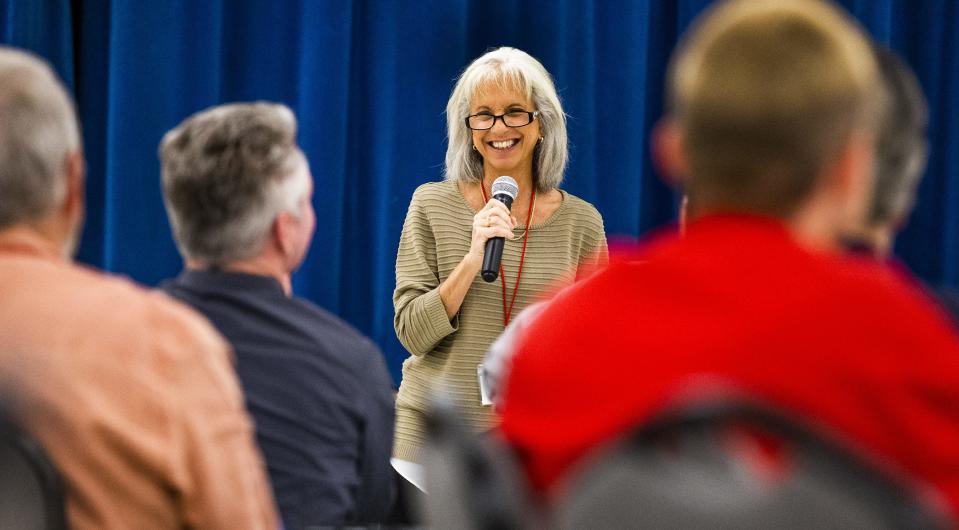
Four sober homes have been opened in Fountain Hills since Dickey got into office, according to Kalivianakis, who said the new facilities worried residents and spurred political engagement ahead of August’s election.
“We had unregulated sober living homes moving into our community, which was very unpopular with (residents),” said the newly elected council member.
Kalivianakis described crowded Planning and Zoning Commission meetings as residents pushed for stronger regulations, adding that continued regulation is one of her priorities even though the number of sober homes is still relatively low.
“The last I heard it was four. But trust me, if we just let it go as it is right now, (it will) increase exponentially,” she said.
The town commission suggested a new policy that would require sober homes to be at least half a mile away from one another, a move that would drastically limit the number of those facilities in the 20-square-mile town.
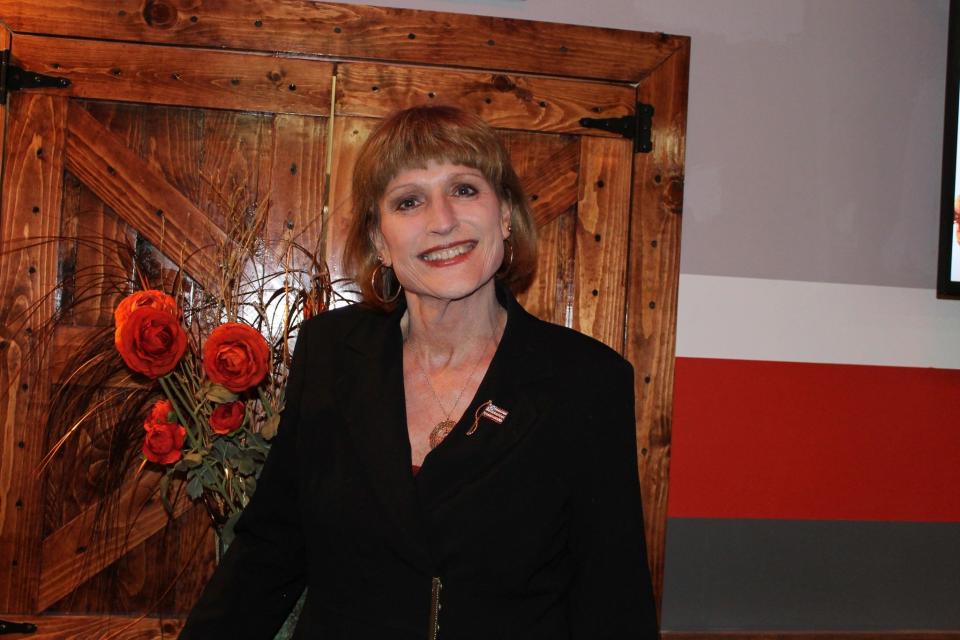
Kalivianakis and other local conservatives said council members “watered down” the proposed ordinance over fears that it was too “exclusionary” and would cause the town to violate federal laws that limit how much officials can restrict group homes.
“There was some concern that that was maybe too exclusionary. And so the council ended up cutting (the distance) in half,” said John Wesley, the town’s development services director. “Staff and our attorneys just want to make sure the council was fully aware of potential issues with the ordinance as it had been recommended as they were making their final decision.”
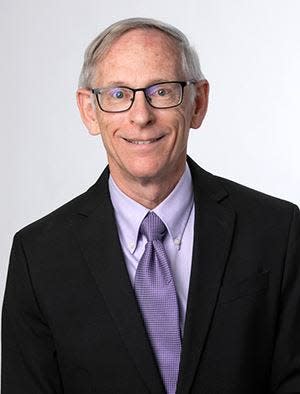
It’s still unclear whether the half-mile rule would be illegal, but the three conservative candidates this election all contend that further restrictions are allowed.
Regardless, it was what sparked the creation of the ROT PAC and began the push to get a conservative majority on the council, according to Kalivianakis and other officials who said the “dirtiness” of the election may not have otherwise come to pass.
“That really created a lot of energy, which spawned a PAC called Reclaim Our Town,” Kalivianakis said. “Had it not been for sober living homes and detox centers, this election would have been completely different. That was the energy behind everything that transpired.”
Nonpartisan elections 'a myth'
Retired Fountain Hills residents Lawrence Meyers and Crystal Cavanaugh ran ROT with the goal of getting a conservative majority on the Town Council. Together with another PAC called Fountain Hills Forward, the groups spent about $30,000 to defeat Dickey and Couture.
Meyers, who served as treasurer, said ROT members hashed out a strategy with the conservative candidates before the PAC was formed. The plan was that the committee would take shots at liberal contenders, allowing conservative candidates to keep things positive.
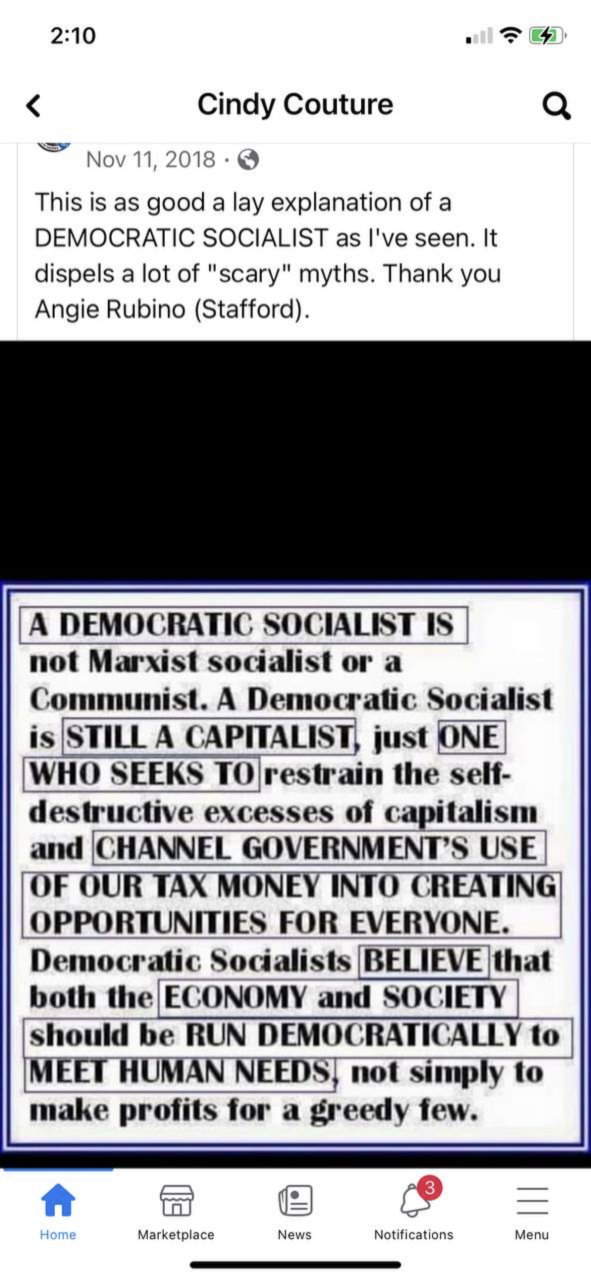
“Before we formed the PAC, we went to the conservative candidates and we told them that if we were to form the PAC, we would take the role of the aggressor,” Meyers said. “We told the candidates you should be positive about what you want to do, the changes you will make, and stay away from attacks.”
Couture was at the receiving end of most of ROT’s attacks, being labeled a “communist candidate” because of a Facebook post about Democratic Socialism and another in which she appears to advocate that “anti-vaxxers” be prosecuted.
Couture, a first-time candidate, also accused ROT of circulating a photoshopped image of her in what’s supposed to be a Soviet-era uniform, although the PAC denies being behind that image.
It appears that ROT labeled Dickey as a “leftist” mainly because of her affiliation with Couture, given the PAC’s website that reads, “Mayor Dickey helped collect signatures for the far left, communist candidate Couture as well as contributing funds to her campaign.”
“I've been here 38 years and I'm not acting as a partisan in any way, shape or form, but that was probably their best shot,” the sitting mayor said of the ROT campaign against her.
The PAC’s hyperpoliticization of the election was part of the plan, according to Meyers, who said ROT saw nonpartisan elections as a “problem” that masked candidates’ true agendas, a sentiment echoed by Toth and Skillicorn.
“I get the whole nonpartisan nature of things, but in reality, it's a myth,” the PAC treasurer said. “(The left-leaning candidates) have gotten around it — that's what they shout, 'We're nonpartisan, we're nonpartisan,' and then they govern as Democrats do.”
Town says some ROT claims are bunk
In addition to sober homes, Meyers pointed to the town’s COVID-19 mitigation measures — which ended last year but hindered public participation in council meetings because of attendance limits—- and financial policies as examples of the mayor’s left-wing governance.
Meyers cited a roadway roundabout study, which he said would cost $400,000 and the town doubling its contribution to homelessness planning efforts that are conducted by the Maricopa Association of Governments — a regional organization made up of municipalities across the county.
“You have to connect all of the dots,” the PAC representative said. “We connected the dots, and the dots are who runs the town. … Because the town is run by a majority. The current majority, which is still seated right now, is a bunch of liberals.”
Bo Larsen, the town’s community relations manager, said the roundabout study would be necessary to get millions in federal roadway funds, but has yet to be approved and likely would not cost as much as Meyers' suggested.
About the town’s homeless program contribution, Larsen explained that “we pay in to help with the homelessness study and programs that MAG is providing for the homeless."
“When it's all said and done, we only donate like $50,000 to MAG programs," the town staffer said. "It's not a ton of money and we're not, like, promoting homelessness.”
ROT also slammed Dickey for “increased crime” under her leadership, as well as a rise in the town’s homeless population.
Larsen said neither spike actually exists and that “when we (last) went out and did our homelessness count, I think they literally counted one that day.”
“Crime has not gone up as an issue by any means,” he added. “The biggest thing that goes on around here is traffic stops.”
‘I have never seen such a dirty campaign’
Not all of the conservative candidates followed the strategy of letting ROT be the “aggressor” while they remained positive, according to Meyers who said “some listened, some didn't.”
Skillicorn, who received the lowest number of votes among the three winning candidates, was one of those who didn’t follow that advice.
He went after Couture during a candidate forum at the Fountain Hills Community Center this summer, which caused an uproar among the audience and led to event organizers clearing the hall for the remainder of the event.
“Some people have said some things online that are a lot different than what they say on the stage. There’s three of us who are telling the truth and (Couture) is not,” said Skillicorn, who went on to quote President Ronald Regan by saying, “it isn't so much that liberals are ignorant, it's just that they know so many things that aren't so."
The former Illinois lawmaker was referring to Couture’s political leanings, which he and other GOP campaigners felt she was hiding because of her stated desire to keep the election nonpartisan.
Fountain Hills election: Fountain Hills election: Where mayoral, Town Council candidates stand on finances, other challenges
“To me, this shouldn't have been partisan,” Couture told The Republic, echoing her earlier statements during the campaign. “This should have been, 'we're neighbors, this is our community.' We do what's best for the community.”
Skillicorn’s antics on stage irked ROT and its contributors, according to Meyers who believes the candidate lost votes because he took an aggressive tact.
“Skillicorn, as is reflected by the vote, didn't listen. He attacked a lot,” Meyers said. “The overwhelming consensus (from PAC contributors and residents) was one of two things: I knew we needed a majority on the council, so I held my nose and voted for Skillicorn, or I didn't vote for him because he attacked Couture in a personal manner at the forum.”
Numerous others, including conservatives, liberals and sitting officials were turned off by the tone of the entire election.
Magazine, the outgoing council member who managed Couture’s campaign, said “I've spent almost 16 years in elected office. I can say with certainty, I have never seen such a dirty campaign in my life.”
Kalivanakis said she didn’t support ROT’s campaigning, calling the “negative” campaigning “bad politics.”
Scharnow, another outgoing council member, said the election was the “nastiest” one he’s seen in his four decades as a Fountain Hills resident.
“It just seems like this (election) was particularly nasty and more personal. (There was) a lot more polarization and name calling than I’ve seen before,” Scharnow said. “It's certainly disappointing.”
'I will not concede'
Arpaio's campaign largely avoided the mudslinging that was embraced by ROT and candidates like Skillicorn.
He ultimately came up short by 213 votes. Arpaio said he plans to look into whether he can legally push for a recount through a legal challenge, although he has not yet hired an attorney.
"I will see what happens with the investigations and controversy going on with the fraud or incompetency," said Arpaio, who was referencing the debunked claims of voter fraud in the 2020 election. "I will say one thing: I am not going to concede."
The former sheriff was found guilty of criminal contempt of court in 2017 for ignoring orders to stop racial profiling at MCSO, but was pardoned by then-President Donald Trump. He lost his bids for sheriff in 2016 and 2020, and for U.S. Senate in 2018.
Arpaio mentioned that he lost by "pretty close" margins in each of those races.
The 90-year-old added that he plans to remain politically active, but did not say whether he would run for office again in the future.
“I still have my hands in the political system. I may not be running right now, but when you look at the last two months, 30 people around the country have called asking for my endorsement,” he said. “Somebody out there likes me.”
Reach Sam at [email protected]. Follow him on Twitter @KmackSam.
Support local journalism. Subscribe to azcentral.com today.
This article originally appeared on Arizona Republic: Fountain Hills election shows party politics seeping into local races
